Katyn and WWII Diary – Synopsys
Leon Gladun, Polish Officer
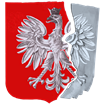
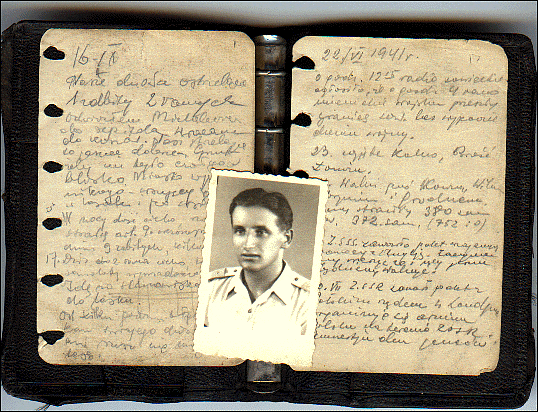
The Katyn Diary of Leon Gladun survived numerous encounters with death, both German and Russian. It chronicles battles in several campaigns and records the writer's travels through many countries on four continents. Though Leon died in 1973, the material in his diary is being used as evidence by the Commission for the Investigation of Crimes against the Polish Nation, in Warsaw. (Photo of Leon taken in Palestine).
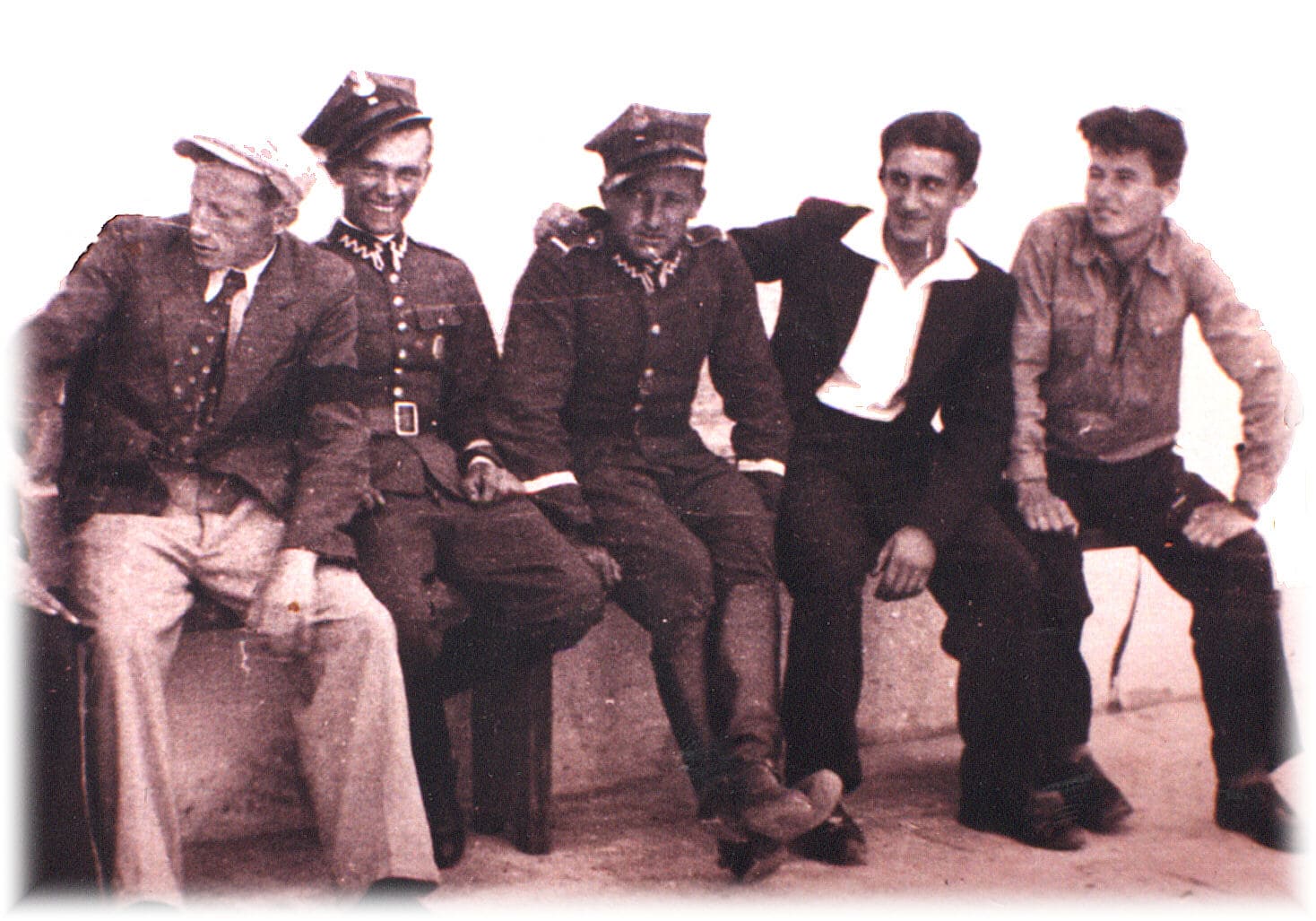
Leon on break from military training, 1936.
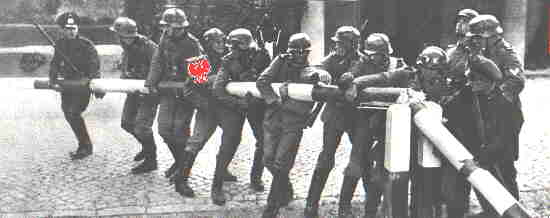
Sept 1st, 1939 - The Nazi's Invade Poland
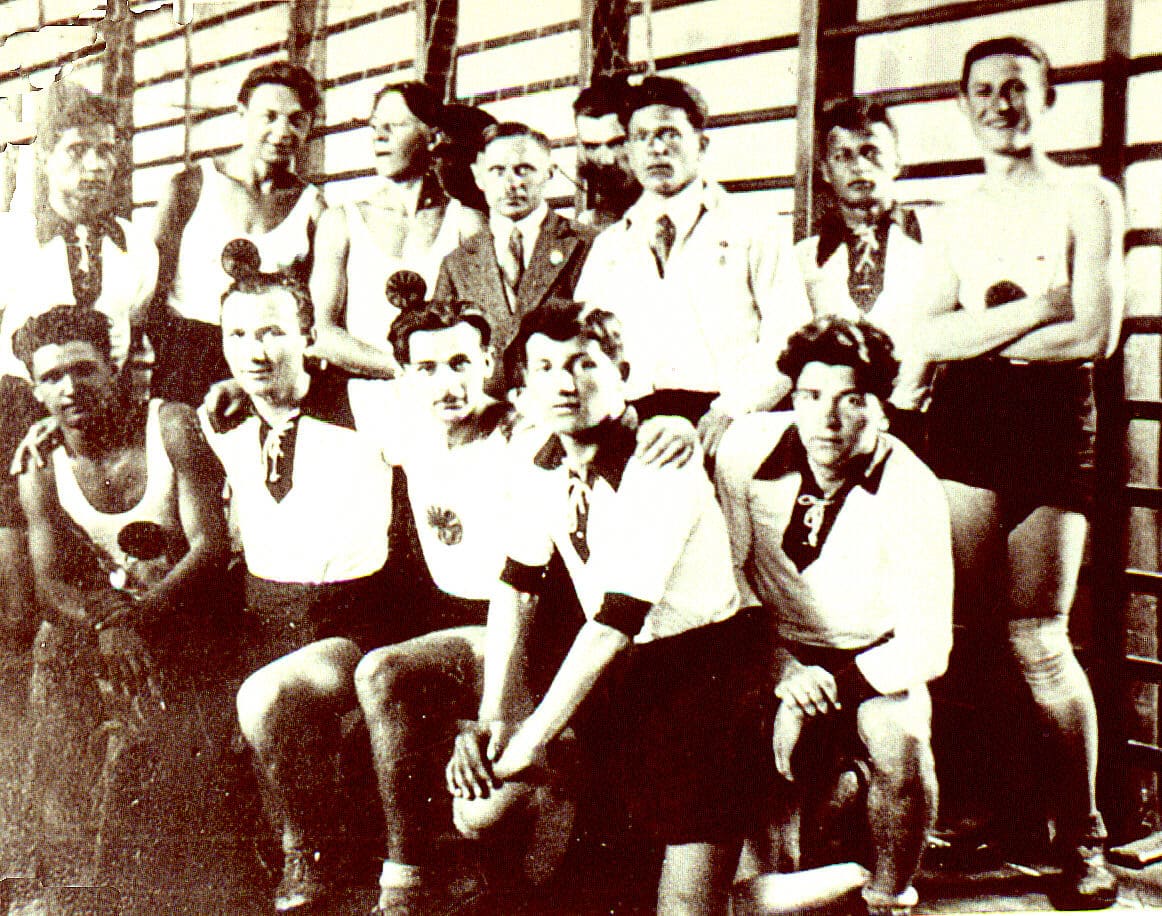
Classmates and rivals from Krzemieniec Lyceum and from Rydzyna in a group photo (Leon, second from front). There was a fierce rivalry between the two elite schools culminating in annual competitions
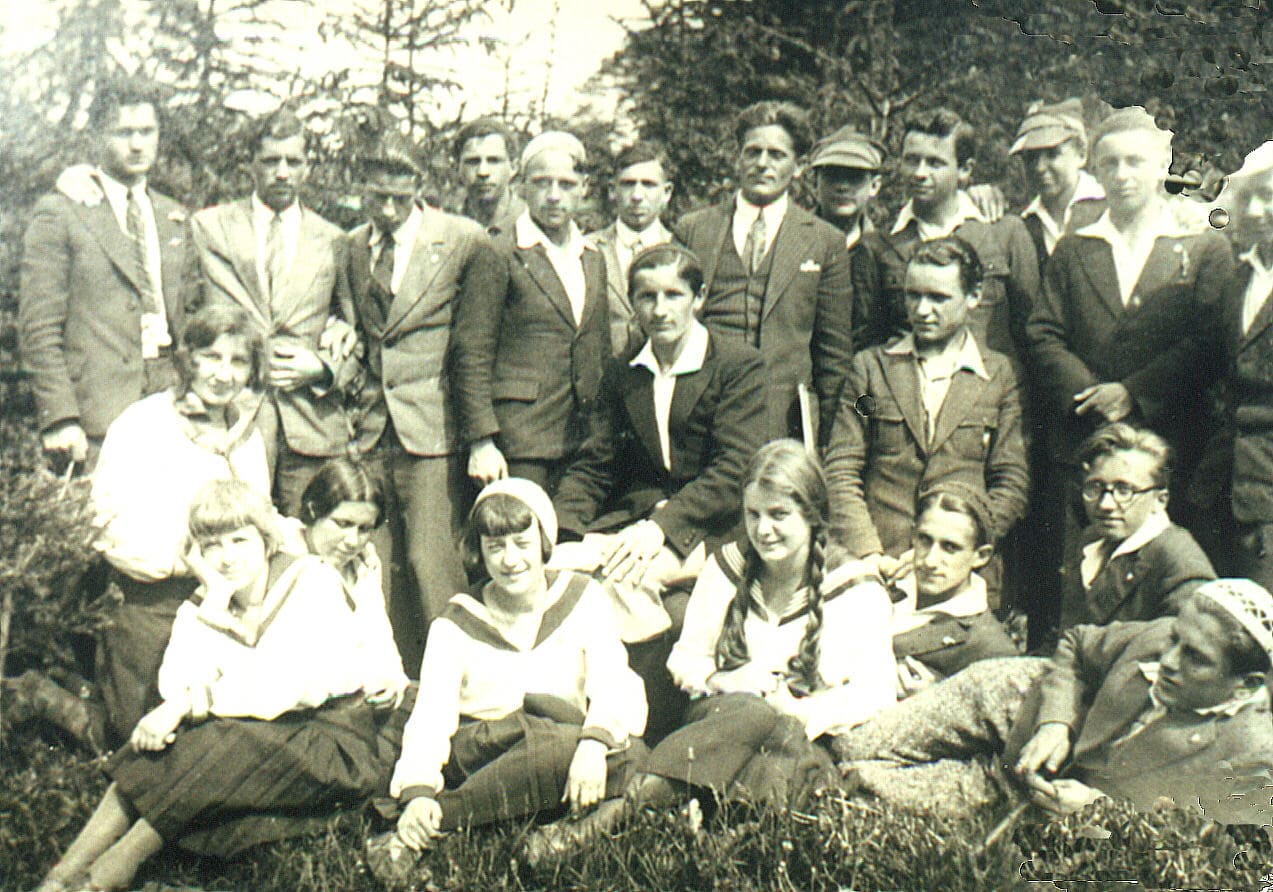
Krzemieniec High School Outing: Many of the students would be killed in World War Two at the hands of the Nazis or the Soviets and their collaborators. (Leon, seated center.)
On September 1, 1939, Leon Gladun was mobilized as an officer cadet to defend his beloved Poland against the Nazi blitzkrieg. A horticultural student at Stefan Batory University, my father would only have time to grab a few photos from his home in Krzemieniec, before racing to the front, leaving behind his mother and grandmother. Leon would never graduate nor would he see his home again, and it would be twenty years before he’d be reunited with his mother. Most of his classmates and friends would perish during the war.
One of my father’s surviving possessions is a diary of the years he spent in uniform: from his first battles against the blitzkrieg in 1939, to V-E Day in Italy, when the Germans finally surrendered. Leon would train and fight in Poland, the USSR, the Middle East and Italy. Even after the war, he escorted Axis POW’s from Italy back to their homes because he had no country–Poland had been sacrificed to Stalinism.
The diary also chronicles his life as one of the thousands of Polish officers who were captured and imprisoned by the Soviet Union. Leon unwittingly records the last days of his comrades who would be murdered in one of the greatest and most controversial war crimes of the Second World War: Katyn.
My Dad “survived” Katyn and the war. In 1951 he arrived in Canada with his wife Janina, a hometown friend and Gulag survivor, listed as “labourer” and “maid,” and they would start a new life. But he was haunted by the fact that so many of his family and friends had been excecuted, killed in action, or had disappeared. We came to love a father who hid his anguish and survivor’s guilt behind a mask of stoicism and silence. Leon never joined any veteran’s groups and made few new friends in his adopted country, and was very protective of his home and family. He knew it all could be lost so easily…
And finally the Second World War would also claim him: the meningitis and malaria that he had outwitted in army hospitals struck as a clot producing a fatal heart attack. My father died on New Year’s Day, 1973, at age 58. Leon’s tombstone in St. Catharines, Ontario, reads: “Lieutenant, Polish Army”.
Before her own death in 1997, my mother bequeathed me her husband’s war medals and a tiny black binder embossed with Polskie Elektrownie. This was my Dad’s diary which he had carried next to his heart through countless battles and encounters with Death. It was his most precious possession, and it is my most treasured memento now. Just to hold my father’s diary is a victory over the evil that tried to destroy and bury him as it did thousands of others. Similar diaries were (and still are!) pried from the exhumed victims at Katyn and other sites of mass murder. The entries in those all cease by May, 1940–the writers brutally silenced by a bullet. But Leon would go on to record the entire war in this and subsequent diaries.
My father’s handwriting in pencil–at times smudged or indeciphrable–covers some twenty pages of his “Katyn” diary from 1939 to 1942. In places he skips months or even an entire year, while some passages have been obliterated as if he were trying to undo History. Relatively short, it is both startling and ordinary, and punctuated by a naivety that is the product of desperation and propaganda. Significantly, Leon’s diary harbours no suspicion of the horror hanging over him and his comrades; none of the diaries and letters at Katyn did. His diary gives a human face to Katyn; it also offers insight into the soul of a man who escaped a death sentence signed by Stalin himself. Above all, it is a testament to Leon’s murdered comrades. I present excerpts from Leon Gladun’s “Katyn” Diary along with my observations and explanations. (Leon also left a longer diary that covers 1942-1945 in the Middle East and Italy, and a short diary ending in 1951.)
Sept.16, 1939: Our guns are shelled–9 killed and several wounded. Our boys are firing–things are still good as long as there’s no tanks nearby. I drove Michalewicz to the hospital.
As an officer in the light horse artillery, Leon’s training in science and mathematics is put to use in calculating shell trajectories and barrages; days earlier he had been tendings plants in a greenhouse. Shrapnel from a German bombardment just misses him–but fatally strikes a friend crouched next to him. Later at war’s end in Italy, another buddy will similarly die in his arms of shrapnel. My Dad had many “war stories” but he seldom spoke of his dead comrades, particularly those killed at Katyn. Instead, my mother would tell me bedtime “fairy tales” in which my father was the hero while Hitler and Stalin were the evil ogres, and there were few happy endings.
Sept.17, 1939: I heard some heartening news: 60,000 Englishman have landed in Poland–God grant this be true!
My father grasps at rumours, as many Poles did, but the promised military response of France and England never materializes. The Polish army desperately fights a losing battle against the Nazis; Leon’s hometown is first terror-bombed by the Nazis and then occupied by the Soviets. My father remained bitter toward the Allies for their betrayal of Poland, and for their part in the coverup of Katyn (which lasted into the 1990’s). He was a proud Canadian, but shunned Remembrance Day–he recalled Poles being prevented from joining victory parades in Italy and London, for which they had spilled their blood.
Sept.18, 1939: Shocking news: Russia has crossed the border! Many soldiers throw down their arms and head for home, the rest jump on horseback and escape to the west. The worst is that our weapons were grabbed by civilians, and as soon as we rode off bands begin to operate armed with our rifles.
The USSR has suddenly invaded Poland from the east–Stalin acts as hyena to Hitler’s lion. In the chaos Ukrainian and Jewish “militias” are given free reign by the invading Soviets to attack or betray Polish soldiers and to murder civilians. On this day, the Red Army rolls into Krzemieniec and mass arrests and executions quickly follow.
Christopher Jacek Gladun was born in 1951 and grew up in Canada to where his family emigrated from England as displaced persons. Sadly, Chris died in Toronto in March 2003. He held a diploma in Journalism from the Niagara College and a BA in Polish Language & Literature from the University of Toronto. Chris also acted as interviewer and researcher for the documentary film “Rescued From Death in Siberia”.
This content is now maintained by the Kresy-Siberia Group, which Chris was a charter member of and which is taking his website and his research work forward.